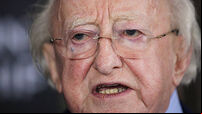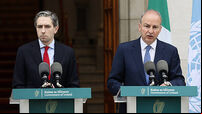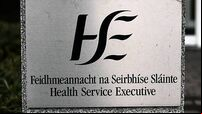Tariffs are a 19th century mechanism, Taoiseach says
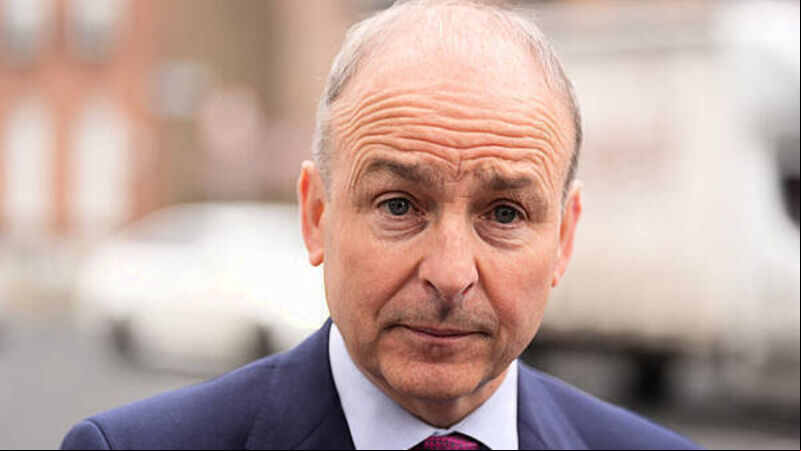
By Cillian Sherlock, PA
The US and EU entering into negotiations would be a signal of stability to stock markets, the Taoiseach has said.
Global stock markets continued to plunge on Monday as the world reacts to sweeping tariffs imposed on a range of countries by the US.
Taoiseach Micheál Martin said the EU should engage with the US on the potential countermeasures the bloc is willing to take.
Last week US president Donald Trump announced a 20 per cent tariff on imports from the EU, with some limited exceptions.
It followed previous announcements of tariffs on aluminium and steel, and on the automotive sector.
The EU is working on a suite of measures to respond to the aluminium and steel taxes, while also considering its response to the broader tariffs.
Asked about those countermeasures on Monday, Mr Martin said: “They must be designed strategically so that they do not, insofar as possible, bring more damage on to the European economy.
“But the only way to ease the carnage on the stock markets is for a negotiated pathway between the United States and the European Union.”
Mr Martin said the “EU can respond and will respond” but that the world economy was already being damaged.
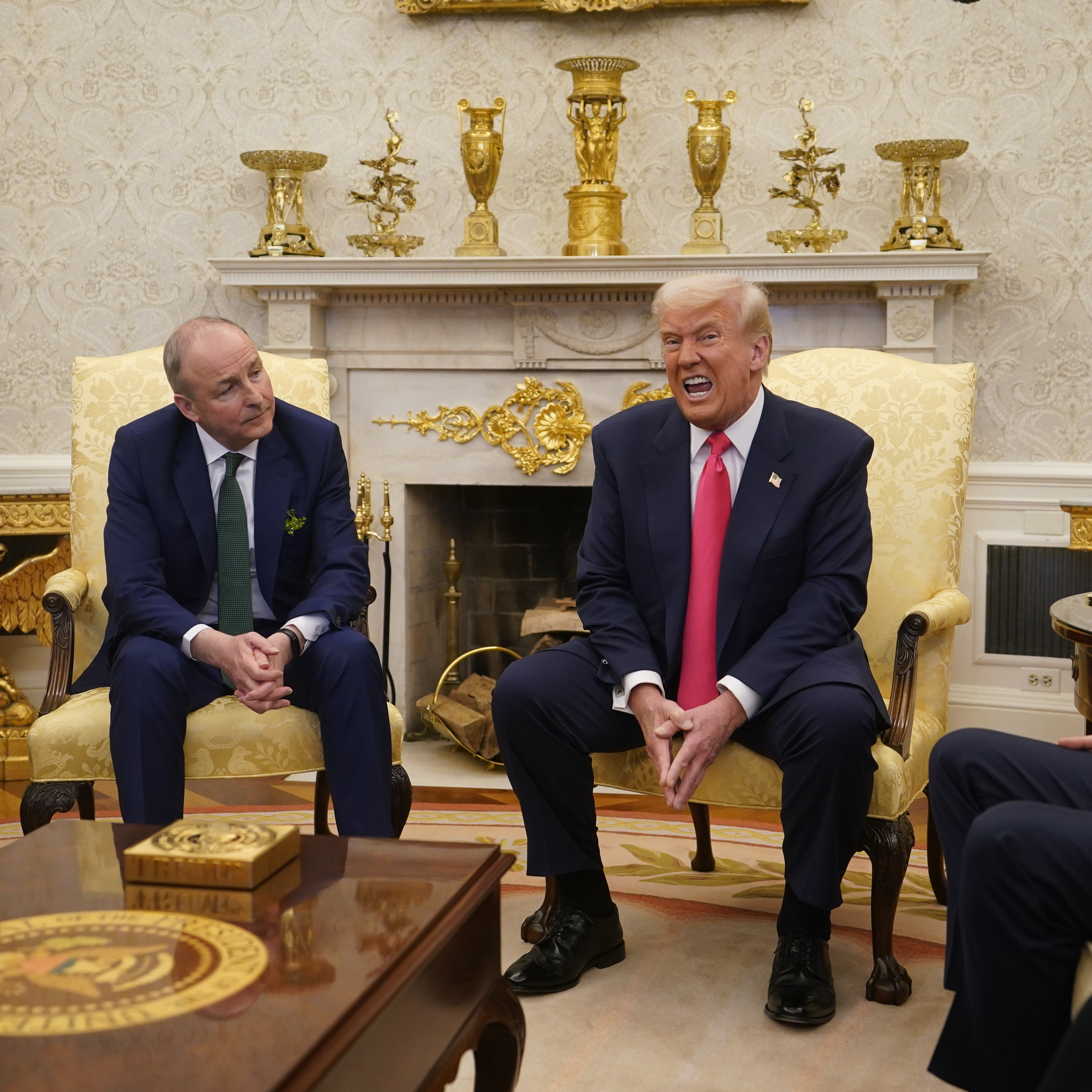
Mr Martin said the dispute had resulted in “very uncharted territory” but he hoped that negotiations could result in lower tariffs and a broader resolution of trading issues between the US and the EU.
He added: “Decisions have consequences, and it’s very clear that these most recent decisions are having consequences in the United States and, therefore, very often, the push for moderation could come from within the United States itself.”
Mr Martin described the formula used to arrive at the 20 per cent figure as “crude”.
He said: “The beauty of the modern world is that it’s interdependent.
“So I think the mistake being made with crude tariffs is it’s kind of a 19th century sort of solution or response to a 21st century economy.”
The pharmaceutical sector is a particular concern for the Irish economy, as it s for a significant amount of exports to the US.
Pharmaceuticals are currently exempt from the 20 per cent tariffs but the US istration has previously said it would consider taxing such imports.
Mr Martin said: “I think there’s a lot to play for yet on the pharma side.”
He predicted there will be increased demand and cost for medicines, adding: “Europe itself can do more to the pharmaceutical industry as well, and we will be having that engagement with the European Commission in of protection time for IP, development and exploitation, and also around access to new medicines and so forth.”
Mr Martin said the relationship between Ireland and the US remains “strong, good and warm” despite the policy changes.
Earlier, Tánaiste Simon Harris appealed for calm and de-escalation, adding that the EU does not want to get into “tit-for-tat” tariffs with the US.
Mr Harris travelled to Luxembourg on Monday for an extraordinary meeting of EU trade ministers focused on US tariffs.
Today in Luxembourg, I’ll be making it clear to fellow EU Trade Ministers that 🇮🇪 stands firmly behind a united 🇪🇺 response to the US tariffs. I’m calling for a strong but proportionate response that defends our shared interests and keeps the door open to a negotiated solution. pic.twitter.com/5wshm0wpmH
— Simon Harris TD (@SimonHarrisTD) April 7, 2025
Asked about the Irish position on including tariffs on US tech and digital services in the EU response, he said: “If you were to get into that space, it would be an extraordinary escalation at a time when we must be working for a de-escalation.
“It is in many ways the nuclear option if you start talking about the use of the anti-coercion instrument (ACI) and the likes.
“So what we need to do here is, step by step in a measured way, consider how best to respond.”
Mr Harris said it is “certainly not” the majority view of member states to use the ACI right now, adding that the focus is on responding to steel and aluminium tariffs and arriving at a position of negotiation.
On the response to steel and aluminium taxes in particular, he said he has written to the European Commission about Ireland’s concerns over the potential reintroduction of an EU tariff on US bourbon imports.
Mr Trump has previously threatened a 200 per cent tariff on EU spirits if such a measure is taken, which would significantly affect the Irish drinks sector.
Mr Harris questioned the “strategic relevance” of targeting US bourbon, adding that the EU list of countermeasures to the steel and aluminium tariffs has yet to be finalised.
Mr Martin also said he was “hopeful that a sensible, strategic approach” would be taken to bourbon.
“This is a list that could invite certain responses, and one has to be strategic in presenting the first list.”
Mr Harris said the EU countermeasures to steel and aluminium have to be seen as “very small and measured” when compared with the full quantum of US tariffs on the bloc.
Pressed on whether the EU will have to include services to achieve an equal response to the wider, sweeping tariffs, Mr Harris said the bloc’s position is not to “get into tit-for-tat”.
“It’s not to accept that where we are now is the inevitable outcome, and actually seek to engage.”
He added: “I really think economics is on our side here. And no matter who’s in the White House, no matter what anybody’s ideological view is, a trading relationship of €1.6 trillion between the European Union and the United States of America really matters.
“And we’re beginning to already see the US markets, and I think people in the United States themselves, begin to convey that to their istration.”
Mr Harris will travel to Washington DC on Tuesday for engagements with the US istration.
“Anything that I say in Washington in the coming days will be in of the European Union efforts to get to a place of engagement and negotiation,” he said.
“I really believe that if people get around the table, a way forward can be found.
“This is a trading relationship that matters, and Europe has been very clear. We’re up for a deal.”
Asked about for heavily-affected sectors, Mr Harris said the EU is going to have to “accelerate conversations around competitiveness and productivity”.
He said Ireland will keep the matter of “under review” but said no scheme could mitigate the damage of the tariffs being implemented by the US.
